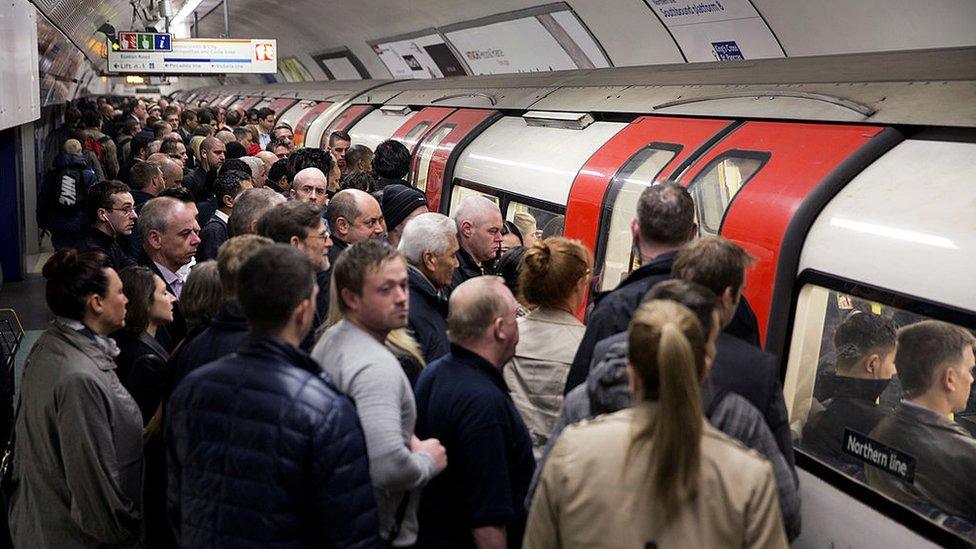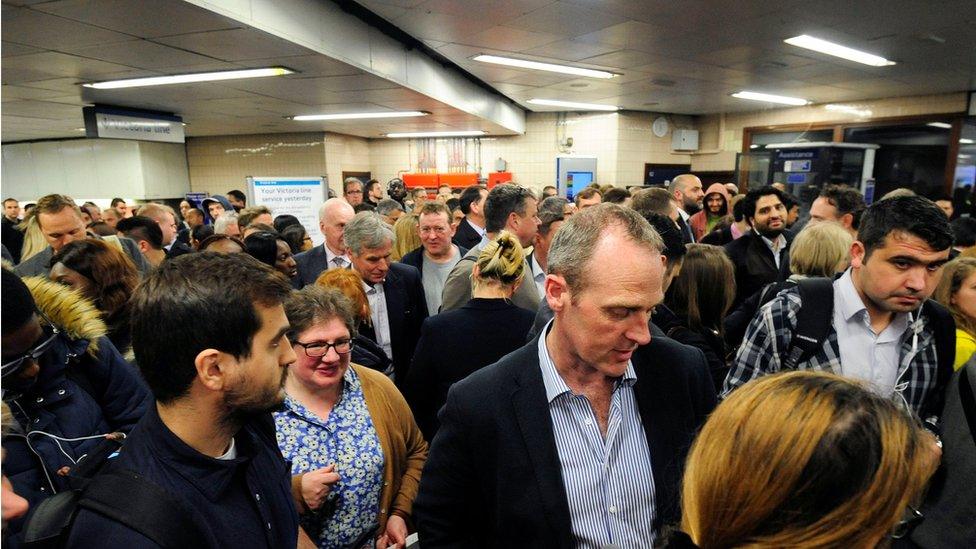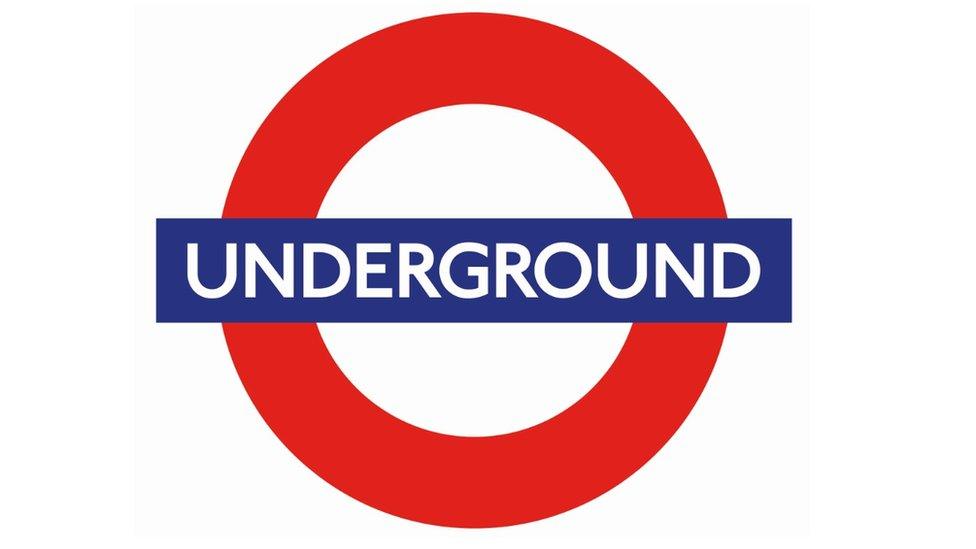Overcrowded Tube station incidents rise 3% in a year
- Published

Between April 2015 and March 2016 TfL said 1.344 billion journeys were made on the Tube network
The number of times passengers were stopped from entering London Underground stations because of overcrowding rose 3% in a year.
Transport for London (TfL) said there were 547 "temporary station controls" - where commuters are prevented from entering - from March 2015 to February this year.
That compares to 531 during the previous year.
More than a fifth occurred at Oxford Circus, with 219 in the past two years.
The data was released in response to a Freedom of Information (FoI) request.
More on this and other London news stories.
TfL said there had been 30 full station closures due to overcrowding in the past two years.
'A daily problem'
A spokesman for London mayor Sadiq Khan, said: "Sadiq has been clear that we can't have a situation where people don't feel safe on the Tube, and TfL are already taking short-term measures to avoid overcrowding."
Mick Cash, general secretary of the Rail, Maritime and Transport union, said overcrowding was "a massive issue" and that managing the risk of passengers falling in the gap between platforms and trains had become "a daily problem".

Temporary station controls normally last only a few minutes, TfL said
TfL's website states that station control involves "temporarily preventing customers from entering the station because of crowding".
In a statement, it said: "(Station control) essentially means keeping the station open whilst managing the flow of customers to maintain a safe and reliable service.
"Temporary station controls normally last only a few minutes, and other entrances often remain available during that period for customers to use."
Between April 2015 and March 2016 TfL said 1.344 billion journeys were made on the Tube network, an increase of 39 million from the previous year.
- Published14 June 2016

- Published20 April 2016
